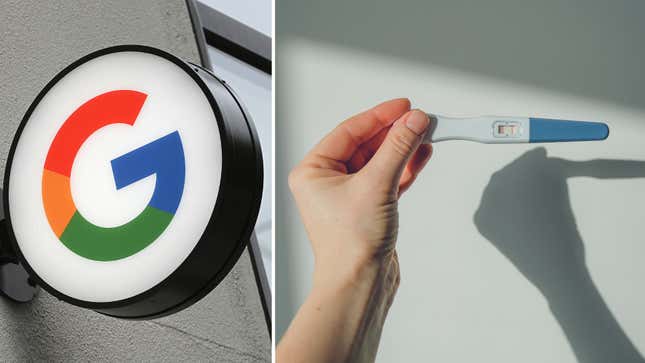Google Isn’t Deleting Users’ Abortion-Related Data, Despite Post-Roe Promise
A new investigation found data related to visiting abortion clinics remained in Google accounts for months, though Google promised to automatically delete it.
AbortionPolitics

After the Supreme Court overturned Roe v. Wade in June, Google faced heightened scrutiny from lawmakers and activists over storing the location data of people who go to abortion clinics. This prompted the company to announce in July that it would automatically delete location data related to sensitive facilities, like abortion clinics, domestic violence shelters, or rehabilitation centers—with the pretty significant caveat that it would still comply with some requests from law enforcement, which issued over 11,000 orders for user data from the company in 2020 alone.
But according to a Tuesday report in the Guardian, there have been serious issues with how Google’s policy change has been implemented. Over the course of recent months, the advocacy group Accountable Tech launched several investigations into Google and how it logs user activity, which you can view at myactivity.google.com. In August and again in October, Accountable Tech investigators simulated searching for abortion providers; using Google Maps while physically driving to and entering clinics; and scheduling abortions on their Google Calendars.
Extensive digital trails of their journeys remained in their activity logs, weeks later, including the precise routes that investigators took. This, despite Google’s promise to immediately delete this location data. Accountable Tech’s research, shared with the Guardian, suggests that if Google doesn’t precisely detect that a user went inside an abortion clinic, and was just in the area of one, their location data isn’t deleted.
A spokesperson for Google told the Guardian that the company’s promised policy change has taken effect, without confirming exactly when it began. The spokesperson noted that “users can turn Web & App Activity off at any time, delete all or part of their data manually, or choose to automatically delete the data on a rolling basis.” But without thinking to manually make these adjustments, it appears that users who seek abortion care are still vulnerable to highly incriminating data being stored in their activity logs for months.
-

-

-

-

-

-

-

-

-

-

-

-

-

-

-

-

-

-

-

-

-

-

-

-

-

-

-

-

-

-

-

-

-

-

-

-

-

-

-

-








































